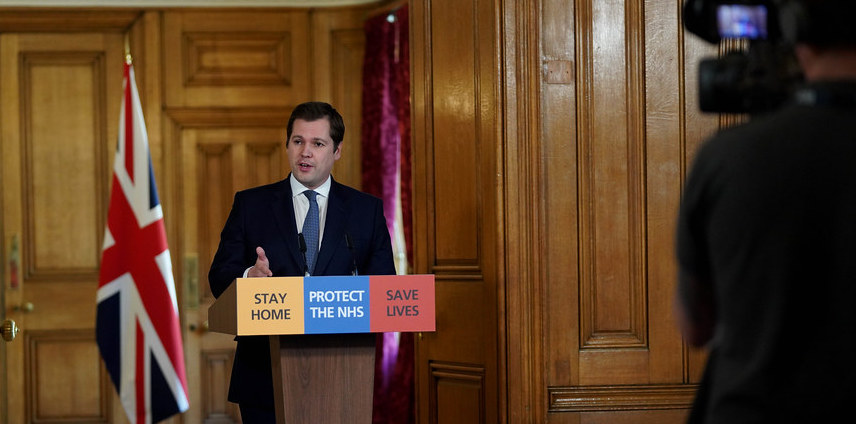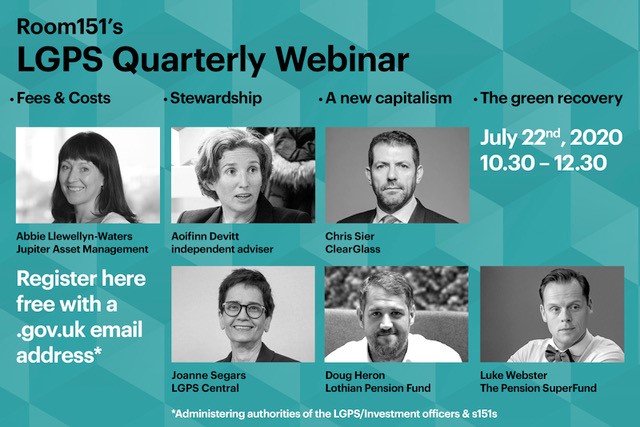
The pandemic has seen local government bear the brunt of a huge financial burden. While central government has found extra money for councils, Leigh Whitehouse argues that Covid-19 has revealed “fragilities” in the relationship between Whitehall and town halls.
In the early days of the Covid 19 pandemic, many major decisions were taken by government which would ordinarily have been hugely controversial. Instead, they were met with near unanimity of support.
More recently there have been what could euphemistically be called lively debates about many aspects of the government’s response. Local government funding may not have generated the biggest headlines, but it represents an issue that will touch many people’s lives.

At the virtual Local Government Association conference on the 2nd July, and in a written statement to the House of Commons the same day, Robert Jenrick, the secretary of state for local government, set out what had been trailed as a “comprehensive plan” for local authority pandemic-related funding (for 2020-21 at least). The headline announcements included:
- an additional £500m of un-ringfenced funding for expenditure pressure (distribution method to be confirmed, but different from the two previous methods used);
- a “co-payment” scheme to fund 75% of lost “non-tax income”, after the application of a five percent threshold;
- a commitment to review irrecoverable tax losses suffered via the spending review due in the autumn, and the ability for collection fund deficits (not bottom line general fund deficits, as was mis-reported in some quarters) to be recovered over three years, and therefore easing the pressure of large deficits on budget setting for 2021-22.
The description of this announcement as “comprehensive” was intended to distinguish it from the two previous funding injections, totalling £3.2bn, which were preceded and accompanied by various conflicting announcements about whether they represented a down-payment, or a final settlement, for local government in relation to the pandemic.
In policy terms, it was also intended to draw a line under the reactive nature of funding announcements that preceded it, and “give local councils sufficient confidence to continue to deliver the services their communities rely on” or, more plainly, avoid the need for any authority to issue a s114 notice.
Allowing for the fact that, at the time of writing at least, details of the distribution of the £500m and the way in which the five percent income threshold will be calculated are yet to be revealed, it seems highly unlikely that history will see the “comprehensive plan” as having either lived up to its name or to have substantively achieved its policy objectives. One might wonder what happened between the conception of the plan and its eventual publication.
Dissatisfaction
Whilst falling a long way short of the total estimated impact of Covid-19 on local government in the current year, let alone future ones, the sums committed by MHCLG to supporting local government in the past few months are, by most measures, substantial.
In addition to the £3.7bn of un-ringfenced funding to date (including this extra £500m), the government cites the £500m council tax hardship funding, £600m infection control funding for care homes, and £300m for track and trace. So why are so many in local government so dissatisfied with the current state of affairs?
Much of the tone has been set by the initial wholehearted backing offered by the secretary of state being swiftly followed by more nuanced, and at times contradictory, messages about just how closely the government would stand with local authorities to manage the financial impact of the crisis.
This hasn’t been the only area where it has been difficult to see consistent principle and policy. As we await the distribution methodology for the third tranche of funding, we are advised to expect a third, different method. The way in which the distribution on the second tranche was driven by (legitimate) district council concerns about cashflow and income pressures, without much warning or debate, was a surprise and a low point for many.
Context
Objectively, it is difficult to argue with the notion that local government should bear some of the financial risk arising from Covid-19 from its own resources—be it by revisiting spending plans or calling on reserves—but there are specific contextual issues that make most people involved in local government feel that this is inherently unfair.
The sheer scale of the impact on some authorities makes it untenable for them to manage it themselves. This is exacerbated by the fact that this public health crisis comes after ten years of “austerity”: year-on-year reductions that have removed much of the capacity to deal with any sort of shock, let alone one of this magnitude.
This has left many s151s trying to reconcile large financial deficits, the need for councils to act in the local and national interest (rather than the specific organisation’s) and an ongoing uncertainty about what funding will be available this year, and importantly next year as well.
Fragilities
Fundamentally, this whole chain of events makes most sense when viewed in the context of the established relationship between central and local government. As ever, that doesn’t just mean with MHCLG. It means other big spending departments, and it means HM Treasury.
The government has had to make some very difficult decisions about how to prioritise many possible calls on funding. I think it is reasonable to wonder whether, given local government’s central role in the response to the pandemic, and as an engine of recovery following it, that those priorities have been judged as best they could have been.
Tough times put the strongest of relationships to the test, but whilst bright spots exist (MHCLG officials have engaged significantly and consistently with the sector), the lack of a firm foundation for the difficult decisions and conversations that have taken place has been evident.
Unfortunately, it is likely that the way events have played out during this crisis are not only an indicator of some of the fragilities that exist in these relationships, they are also destined to shape them for the foreseeable future.
Leigh Whitehouse is executive director of resources Surrey County Council.
FREE monthly and weekly newsletters
Subscribe to Room151 Newsletters
Monthly Online Treasury Briefing
Sign up here with a .gov.uk email address
Room151 Webinars
Visit the Room151 channel











